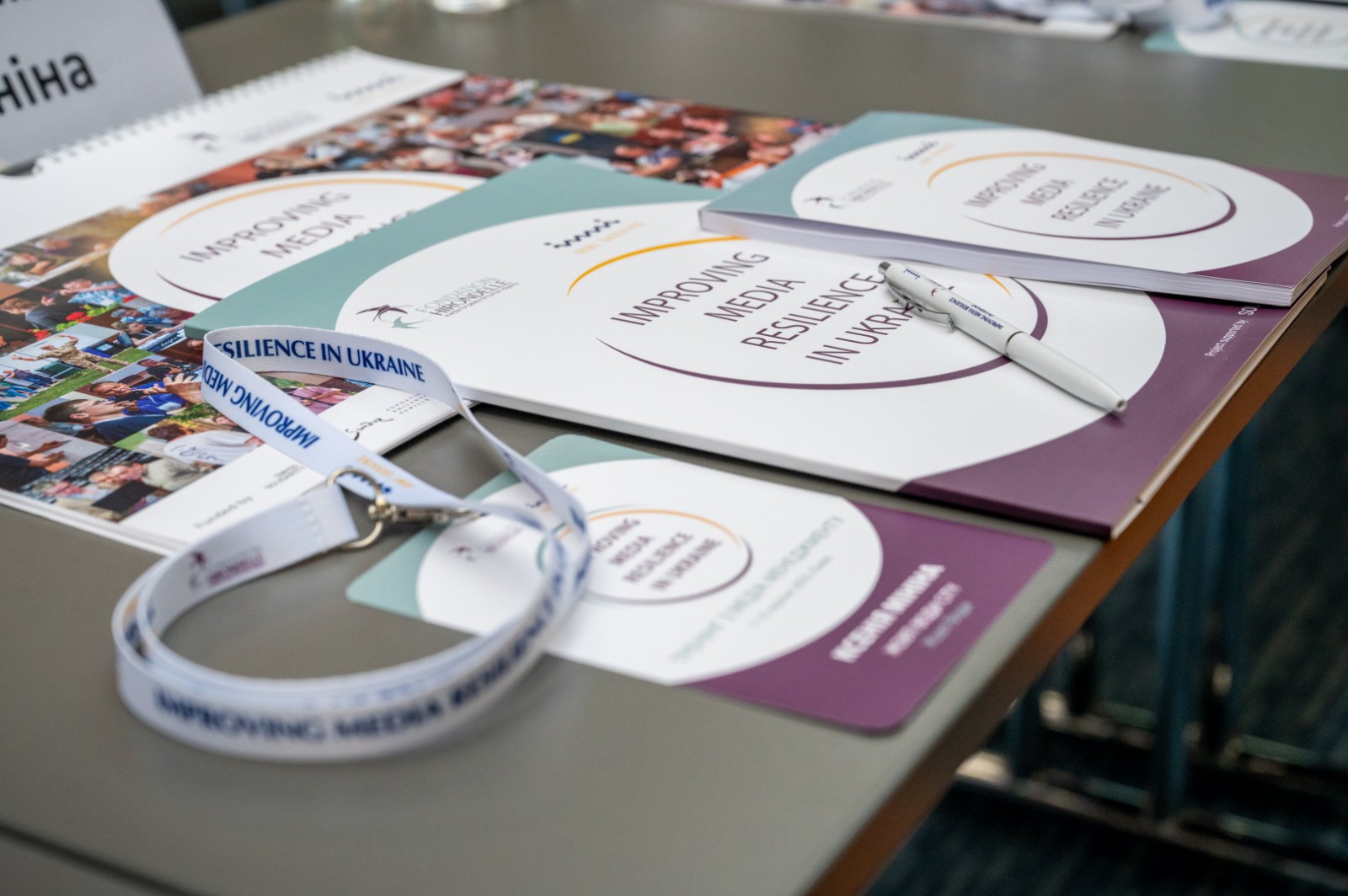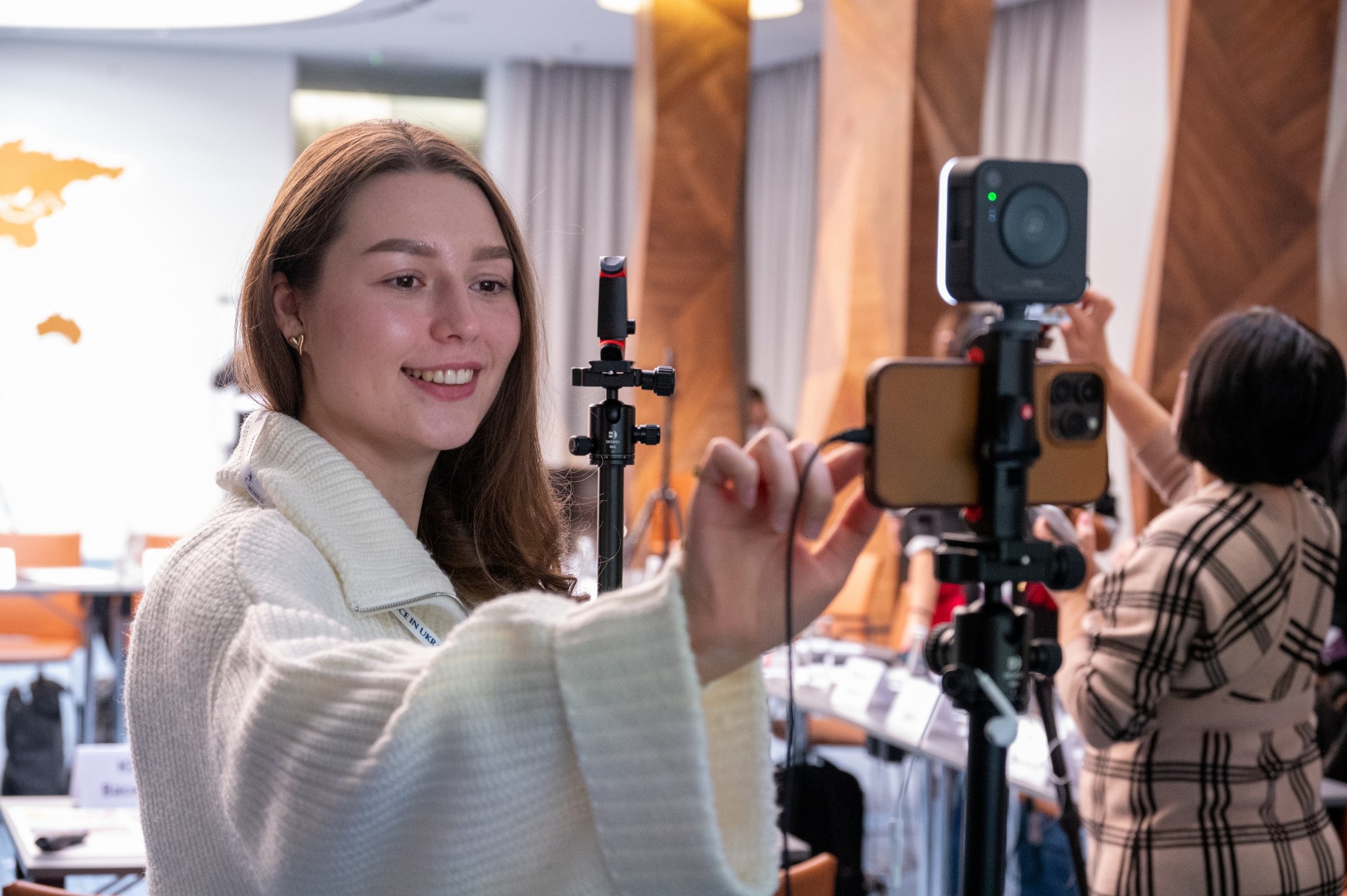

How to be up to speed, attract bigger audiences and overcome professional and economic challenges? Kharkiv and Zaporizhzhia have hosted newsroom meetings within the first stage of business mentoring programme for regional media. The programme is organized within the “Regional Voices” project- an EU-funded initiative – implemented by the Thomson Foundation and the Institute for Regional Media and Information.
Journalists of Luhansk Regional Office of the National Television Company of Ukraine (NTU) arrived to Kharkiv. The TV Company has recently gone public, besides, LOT Channel has distinguished itself by its projects. The channel runs a number of programmes devoted to IDPs and their life stories. Nataliia Fyodorova, the Chief Editor, and Halyna Horeshnyak, Senior Editor for social and awareness-raising programmes, think that working as a professional regional TV station, covering the issues of people residing on the territory with all the problems at hand – all that needs professional excellence. ‘Within this project we would like to perfect our skills of conflict reporting’, says Nataliia Fyodorova. ‘How do we make our coverage sensitive and professional at the same time without breaking the delicacy of trust and sharing?’ The journalists say: viewers are getting more and more regional-oriented and patriotic. They like the TV that features them and their next-door neighbours. The journalists confess that their station is in the first place aiming to build on their audience’s trust, at the same time providing information that would grab emotionally every viewer. They are also striving for being up to speed and closer to European values. For those reasons the staff is happy to have been selected participants of the project.
‘Out of 68 news organizations that applied, we selected 8,’ says Olena Sadovnik, Regional Voices Project Coordinator. ‘The selection criteria were many: as, for example, being a regional media organisation, working close to the conflict zone or the region that received many IDPs, disclosing the name of the owner, having an idea of business processes going on in media-environment. We have been open to those who are in the process of reform.’
According to Olena, the business mentoring programme consists of several stages. The first one will be devoted to gathering information about the needs of the participating newsrooms. Based on the information received and expert conclusions, the agenda of three-day courses for media managers is to be formed. All the news organizations are to receive grants for audience research. Separately four best business projects prepared by media men will be supported.
‘At the present stage the role of the experts is to understand what the media outlets are lacking and where they are heading,’ says Zoya Charles, Thomson’s expert. ‘ What we can offer them as trainers within the project is to structure their further training, tailoring it as much as possible to their needs and support the journalists in their business plans developing. Ukrainian media are undergoing unique processes. There are certain peculiarities, but also there are international tendencies your media are exercising. Important is to give a correct assessment to what id going on in Ukrainian media with international experience in view.’
Yevhenii Maslov – IRMI’s expert – thinks that LOT has a number of assets and the main one is their audiences trust. Therefore, trainers’ task of how to make the news product more effective is clear and the results can be achieved quickly.
Two other newsrooms, where the discussions took place, are Zaporizka Pravda (Zaporizhzhia) and Slobidskyi Krai (Kharkiv) newspapers. Both are in the process of going public. During the meetings the most essential issues were discussed: newsroom structuring, audience research format and on-line presence development, multi tasking for reporters and their retraining. Editorial policy and publication concept for both media organisations are to be developed in the first place.
Both newspapers give a lot of coverage to social issues, to IDP theme and community development, in particular. The top managers of both organizations voiced their need for legal assistance in the process of going public.
Angelina Soldatenko, IRMI’s expert, said ‘All propositions will be taken on board when training agendas for the managers of the newsrooms are developed, as well as online consulting sessions and workshops for reporters.’








